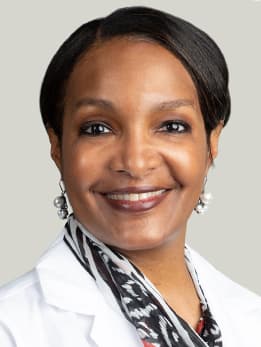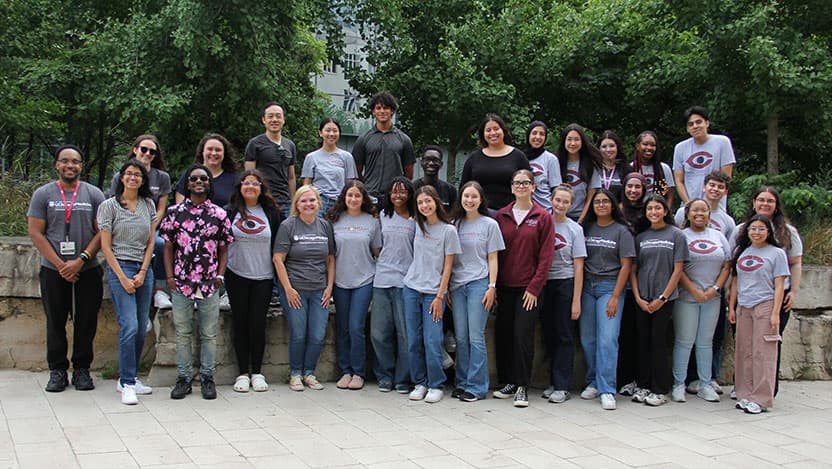Seeking solutions near and far to reduce health disparities

Its anchor location on Chicago’s South Side positions the University of Chicago Medicine at the front line of the study of health disparities – the complex interaction of race, income, access to quality care and other social factors that results in tremendous inequalities in health outcomes.
As one of the leading experts in the field, Marshall Chin, MD, MPH, the Richard Parrillo Family Professor of Healthcare Ethics, has worked for three decades to develop solutions for health disparities on multiple levels, from the individual patient basis to the financial framework of the overall health care system.
“The mission is to try to provide the best possible care for all patients, as well as change the systems and policies that have such a large effect on health outcomes,” Chin said.
Chin’s recent initiatives—which include collaborations with colleague Monica Peek, MD, MPH, associate professor of medicine, and other UChicago experts—highlight vital lessons learned not only on his doorstep on the South Side but also nationally and across the globe.
Bridging the gap
Chin and Peek have been appointed as co-directors of the national program office (NPO) of Bridging the Gap: Reducing Disparities in Diabetes Care, a five-year, $16-million initiative funded by the Merck Foundation. According to the U.S. Centers for Disease Control and Prevention, an estimated 30 million Americans are living with diabetes. The two will oversee and coordinate the efforts of eight grantees to improve access to high-quality diabetes care among the most vulnerable and underserved communities across the country. Transforming primary care, creating partnerships between health care and sectors such as healthy food and housing, and building sustainable financial models are core to the initiative.
“This is an incredible opportunity for the nation and the university,” Peek said. “To leverage the innovation from our institution to address these fundamental next-step questions about health disparities is something we are delighted and honored to be a part of.”
If you really want to reduce health disparities, you have to proactively and explicitly organize and pay for health care around that goal.
The NPO leadership role builds on the pair’s achievements with the South Side Diabetes Project, which Chin and Peek launched in 2009 with funding from Merck Foundation and the National Institutes of Health. The ongoing project offers, among other services, dietitian-led tours of South Side grocery stores to familiarize residents with healthy ingredients, which are offered at a discount. Six local clinics provide culturally tailored diabetes empowerment classes that train residents to ask questions and be an equal partner in their health care.
“Diabetes is about self-management,” Chin said. “By partnering with resources outside of the health care setting—such as families, churches, grocers and community centers—we are able to address how patients on the South Side can live healthily at home.”
Finding answers
Chin takes a systemic approach to health disparities in his role as director of another project, Finding Answers: Solving Disparities through Payment and Delivery System Reform. Funded by the Robert Wood Johnson Foundation, the initiative looks at ways to provide support and financial incentives for health care providers to ensure equitable care for patients across racial and income lines. “Unless you make the business case for addressing disparities, you will not sustain momentum,” he said.
Chin and his team oversee the progress of three grantees across the U.S. They have launched payment incentives to improve the rates of dental care in Oregon; cervical cancer screening, control of diabetes and blood pressure in Virginia; and postpartum care among patients from disadvantaged communities in New York City.
“They not only had to come up with an innovation to reduce disparities, but they also had to revise the way they pay for that care, so that clinics and hospitals would have an incentive to support their efforts," he said.
Lessons from New Zealand
Clinicians in the United States are not alone in grappling with the challenges of health disparities. Researchers from around the globe come to UChicago Medicine to learn about solutions on the South Side from the very faculty that fostered them.
After serving as a mentor to Sarah Derrett, PhD, a visiting research fellow from New Zealand, Chin then switched roles. He took a three-month fellowship in New Zealand to compare the efforts of his host country and the United States toward achieving health equity.
“Travel enables you to see things in a different setting and then look at your own context in a fresh light,” he said. He recently published his findings in the journal Health Policy.
Chin found that racial and ethnic minorities in both countries face bias and racism, with associated serious health consequences and barriers to high-quality care. “There needs to be free, frank and fearless discussions about the root causes of health disparities, such as how structural racism has led to inferior education, housing, and employment opportunities, with subsequent worse health outcomes,” he said.
Both countries also have gone through a phase where government programs have been reduced and individuals must assume greater responsibility for their care. However, New Zealand has a much stronger notion of what a social safety net should be than exists in the United States.
“That is a stunning blind spot in our country,” Chin said. “If you really want to reduce health disparities, you have to proactively and explicitly organize and pay for health care around that goal. You have to measure how health care organizations and providers are doing. And you have to hold them accountable if they don’t reach that goal.”
That’s a goal that Chin and his colleagues at UChicago Medicine will continue to keep front and center for both clinicians and policymakers through their groundbreaking work.
“Health disparities are a problem that require expertise from diverse fields to be most effective,” he said. “The University of Chicago is one of the few institutions where there is both this diverse academic strength as well as a culture of integration and collaboration that brings these strengths together.”

Monica Peek, MD
Monica Peek, MD, MPH, specializes in general internal medicine and preventive health for adults.
Learn more about Dr. Peek





